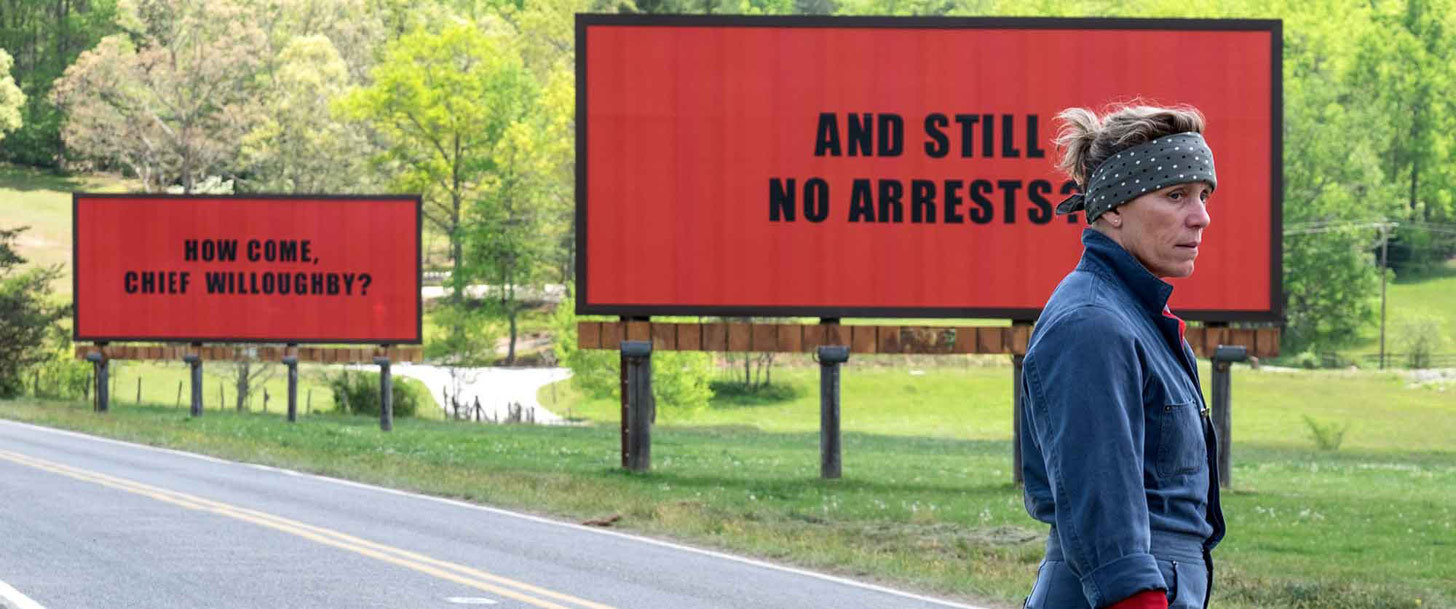Film Review: Three Billboards Outside Ebbing, Missouri
Crime Doesn’t Pay And Neither Does Justice In Pitch Perfect Comedy-Drama

Latest Article|September 3, 2020|Free
::Making Grown Men Cry Since 1992
